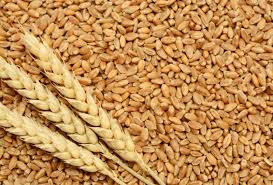Economy Desk
Pakistan has decided to import 180,000 tonnes of wheat from Russia on government to government basis , waiving off all the taxes and duties in a bid to improve the availability of the staple food.
The Economic Coordination Committee of Federal Cabinet which met in the capital Islamabad with Advisor to Prime Minister Dr.Abdul Hafeez Sheikh in the chair, gave a final approval to the decision.
The Committee was informed that about 5 million tons of wheat was available with the public sector in stocks. In terms of import ,430,000 tons has already been imported by the private sector and another 1.1 million ton was expected to be imported by the end of December this year.
“As far as the wheat import by the public sector is concerned, TCP has already opened an LC for importing 330, 0000 MT of wheat while TCP is in the process of tendering another about 1.2 million tons, ” a spokesman of Federal Ministry of Finance said on Friday.
ECC also allowed the exemption from sales tax on supply of sugar imported through Trade Corporation of Pakistan of upto 300,000 MT and allowed the amendment of SRO 751(1)/2020 dated August 20, 2020 of the Revenue Division for the purpose.
The shipments from Russia are likely to arrive by December, Federal Wheat Commissioner, Imtiaz Gopang said.
Economic Coordination Committee #ECC has approved the import of 180,000 metric tons of #wheat from Russia https://t.co/qUytJortC9 @FinMinistryPak@a_hafeezshaikh
— Radio Pakistan (@RadioPakistan) October 2, 2020
According to Russia’s agricultural agency , the country has already shipped 128,000 tons to Pakistan this season, which marks the first wheat exports there since 2014.
Pakistan’s presence in the global market could further boost global wheat prices. The benchmark futures in Chicago have already reached a six-month high.
The price of wheat flour will start coming down as four ships of wheat imported by Trading Corp. of Pakistan are seen arriving in October, the Wheat Commissioner hoped.
Pakistan, the world’s eighth-biggest wheat producer is making the imports to build strategic reserves of the grain and plug a 1.5-million-ton shortage, caused in part by damage to crops after heavy rains.














